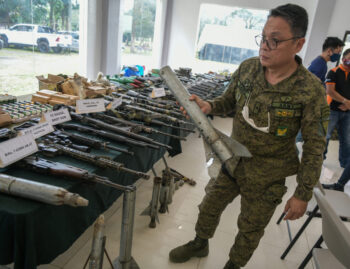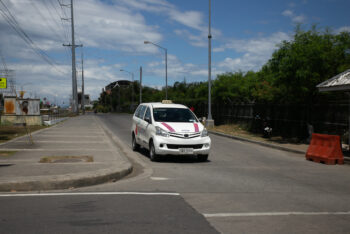3rd of five parts: Economic Rehabilitation
09 Nov 2017
The unexpected prolonged large-scale war has practically transformed the huge concrete buildings, houses, and structures in the central district into ashes. The houses of the burgeoning M’ranaw middle-class families from Marawi City and Lanao del Sur abound in the barangays within the main battle area in the city. The devastation and dislocations affected not only the great majority of poor families in Marawi City but also the rich ones comprising of M’ranaw businessmen based in Marawi and other areas outside Lanao del Sur including Metro Manila, professionals and government officials and workers, etc. In other words, the war has pauperized many of the growing number of M’ranaw middle-class families, and impoverished further the great majority who are poor.
M’ranaws are known to be good entrepreneurs, hardworking, generous, hospitable, and have strong attachment to families and ancestral roots. This means that with appropriate compensatory or remedial economic assistance or intervention, the affected families can regain their lost economic capabilities, strengths, and resources, and subsequently help in building a better and stronger Marawi. Hereunder are some of the necessary interventions:
A.) The economic rehabilitation of the affected residents and families should focus on weaning them from dependence on relief assistance to economic empowerment for self-reliance. The past five months of large-scale relief operation efforts spearheaded by government agencies with the active participation of international donor/agencies and entities, and several domestic business firms, religious groups, civic and professional groups, and civil society organizations and NGOs should now give way to initiatives for building the capabilities of affected residents, families and barangays to be self-financing or self-sustaining. This proposal should cover not only the relief operation activities of the government but also those private/business companies and other nongovernment entities.
B.) The national government should provide immediate livelihood displacement assistance fund to all affected families or households. Instead of continuously giving relief goods to IDPs after the liberation of Marawi City last October 2017, the government should provide a livelihood displacement assistance fund of P30,000 – P50,000 as seed money to support small business activities, or other appropriate livelihood activities to generate income for the IDPs daily subsistence requirements. This will not only help the IDP families to survive, but it will also lead to huge savings for the government. Similarly, a separate financial assistance scheme (cash grant or loan) should be evolved to help previously well-off traders to start reviving their businesses.
C.) Implement massive livelihood skills training to members or dependents of affected families, in addition to the existing training activities of TESDA, to cover a big number of IDPs. The training areas shall cover skills like engineering technology (e.g., computer servicing, carpentry, practical electricity, welding, masonry, plumbing, tile setting), crop production, animal production, food processing, fish capture, entrepreneurship, culinary arts and hotel and restaurant services, and several other areas of demand-driven skills. The government should provide incentives to trainees (i.e., training should be free and the trainees must be provided with daily subsistence allowance). This suggests that TESDA should add more training activities and more trainees, particularly the IDPs. On top of that, other agencies like the Mindanao State University (MSU), Department of Agriculture (DA), Bureau of Fisheries and Aquatic Resources (BFAR), Department of Trade and Industry (DTI), and other appropriate line agencies shall undertake their own livelihood skills training.
In addition to producing top caliber engineers, medical doctors, accountants, lawyers, social workers, nurses, chemists, biologists, fisheries technologists, and other professionals, MSU Marawi Campus can contribute substantially to the livelihood skills training program, through its colleges of engineering, agriculture, fisheries, information technology, hotel and restaurant management and business administration. A good template for this is the “Public Service Outreach Program” of MSU which I conceptualized in 2014 when I was its president. The training activities are designed to benefit madaris students, farmers, fisherfolks, artisans, women, out-of-school youth, etc. This training program and the provision of scholarship grants to biological dependents of mujahideen (in addition to the regular scholarship program of MSU) were among several programs provided funding support from the Php 200 million supplemental appropriation that Senator Francisco “Chiz” Escudero generously sponsored for MSU System in 2015 (upon my presentation and prodding as MSU president then). The first batch of trainees from two big madaris in Marawi City completed their training in computer servicing technology at the College of Information Technology (CIT), and culinary arts at the College of Hotel and Restaurant Management (CHARM) in the last quarter of 2015. The current situation in Marawi City is the best time for the new administration of MSU to continue the program I started and in the process use the unused supplemental appropriation, by implementing on a massive scale the above cited livelihood skills training activities to benefit the big number of madaris students and IDPs from Marawi City and Lanao del Sur.
D.) Provide a “training-to-livelihood implementation” support program. The training interventions are useless without follow-through measures to ensure the application of the competencies acquired by trainees for capacitating their families to be self-reliant. The support services may involve job placement assistance (domestic and foreign), small business start-up assistance, technical support services for livelihood projects, livelihood project monitoring, marketing and other appropriate support services.
E.) Provide a multiple service delivery mechanism to address the urgency, and enormity of needs. Livelihood support programs or interventions by as many sources or providers as possible should be promoted and/or enhanced to cover as many IDPs as possible. For example, in addition to the expansion of the existing livelihood skills training programs of TESDA, the various colleges of MSU-Marawi, MSU-Iligan, MSU-LNCAT, MSU-Miago and MSU-LNAC should band together in implementing their own training programs for the IDPs with funding from their existing appropriation or realized income. The same is true with other government agencies, such as the DA, BFAR, DTI, DOLE, DAR, and DENR. The ARMM, the Provincial Government of Lanao del Sur and the City Government of Marawi, and private/business firms, and donor organizations can partner with MSU by providing supplemental funding support to implement new demand-driven training activities and to cover more huge numbers of IDPs. Civil Society Organizations or NGOs should also be tapped to help in conducting some of the training interventions, or to provide appropriate assistance in targeting trainees or delivering entities. To ensure covering a much larger number of IDPs, the national government must provide new budgetary allocations.
(MindaViews is the opinion section of MindaNews. Dr. Macapado Muslim, University Professor and former president of the Mindanao State University, submitted this policy paper to President Rodrigo Roa Duterte on November 6, 2017. The author says this is a product of a long-running analysis of the Moro armed struggle in Mindanao and an offshoot of the book The Moro Armed Struggle in the Philippines: The Nonviolent Autonomy Alternativ
The author obtained his Ph.D. and M.A. in Political Science degrees from the University of Hawaii where he wrote a dissertation on the Moro armed struggle. He specializes on governance and peacebuilding in multiethnic countries.
Tomorrow: Rebuilding and Modernization







